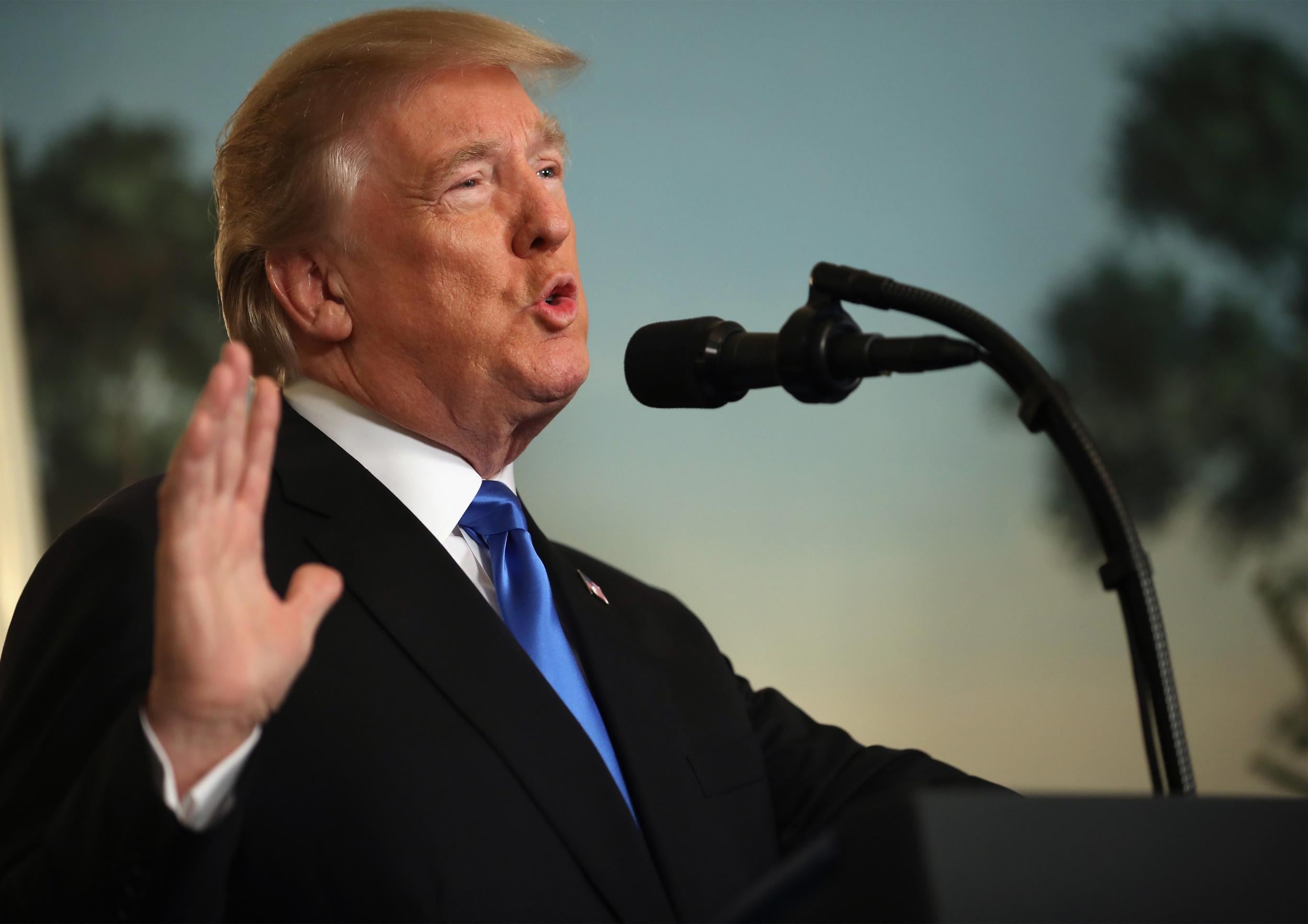Donald Trump not immune to indictment as sitting President thanks to precedent set by Watergate's 'Nixon tapes'
Supreme Court may follow hand of history to bring criminal charge

Your support helps us to tell the story
From reproductive rights to climate change to Big Tech, The Independent is on the ground when the story is developing. Whether it's investigating the financials of Elon Musk's pro-Trump PAC or producing our latest documentary, 'The A Word', which shines a light on the American women fighting for reproductive rights, we know how important it is to parse out the facts from the messaging.
At such a critical moment in US history, we need reporters on the ground. Your donation allows us to keep sending journalists to speak to both sides of the story.
The Independent is trusted by Americans across the entire political spectrum. And unlike many other quality news outlets, we choose not to lock Americans out of our reporting and analysis with paywalls. We believe quality journalism should be available to everyone, paid for by those who can afford it.
Your support makes all the difference.As Special Counsel Robert Mueller racks up indictments and guilty pleas, and President Donald Trump continues to dig himself further into a potential obstruction-of-justice charge, a question lingering since Mueller's appointment comes front and centre: May a sitting President be indicted for a federal crime?
I believe the answer is yes. When I was counsel to the Watergate special prosecutors, one of the issues that we had to address during the investigation of President Richard Nixon was whether the President was subject to indictment for his role in the Watergate cover-up. As we later informed the Supreme Court in briefing the “Nixon tapes” case, we concluded that a president may be indicted while still in office. The Justice Department's Office of Legal Counsel has taken a different position, first under Nixon and later under the administration of President Bill Clinton.
The principal argument in favour of presidential immunity is that the President, as chief executive, is the officer ultimately responsible to “take care that the laws be faithfully executed.” Therefore, for the government to pursue a criminal indictment of the President would be like the President prosecuting himself.
The argument is misguided. In England, it used to be said that “the king can do no wrong.” Indeed, when the Colonies declared independence, English prosecutions were in the name of the king - Rex v. Smith, for example. But the Founders rejected the tradition of royal supremacy. In writing the Constitution, they created a limited immunity for members of Congress protecting them against - but only against - prosecution for “speeches or debates” during congressional proceedings. By contrast, the Constitution is silent on any comparable immunity for the president.
In fact, in the Nixon tapes case, the Supreme Court rejected essentially the same point that Trump supporters are making. There Nixon argued that, as chief executive overseeing enforcement of the federal laws, he was not subject to demands by the special prosecutor that the president produce evidence sought by the prosecutor. The court unanimously upheld the fundamental constitutional principle that no person is above the law, and even the president is subject to the ordinary obligations and prohibitions of federal law applicable to everyone else. The caption of the case says it all: United States v. Richard M. Nixon, President of the United States.
Another major argument for presidential immunity is that the burden of defending against a criminal charge would distract an incumbent president from performing his important public duties. That argument, too, did not convince the Supreme Court when President Bill Clinton claimed immunity from having to defend against the civil sexual harassment lawsuit brought against him by Paula Jones. The court emphasised that a president acquires no special immunity from being held accountable for personal misconduct and explained that trial courts are capable of managing legal proceedings in a way that minimises the impact of a trial on the performance of presidential duties.
Finally, the Constitution does not specify or even imply that no prosecution of a president may occur unless he is impeached and removed from office first. The text simply notes that impeachment does not foreclose later prosecution.
Most significant, the argument proves too much. A single section in Article II of the Constitution specifies, without distinction, that the “president, vice president, and all civil officers” may be impeached by the House and may be removed upon conviction by the Senate of treason, bribery, or other high crimes and misdemeanours. The Constitution does not distinguish between treatment of the president on the one hand and the vice president and other civil officers on the other. History has demonstrated, however, that hundreds of civil officers, as well as Vice President Spiro Agnew, have been prosecuted for federal offences without having been impeached and removed from office.
In addition, criminal prosecution and impeachment are fundamentally different. Impeachment by the House and conviction by the Senate represent a political judgment that an official is unfit for office. By contrast, the federal criminal code includes many offences of a nonpolitical nature, and these offences are pursued by grand juries, conducted by professional prosecutors and ultimately tried before civil courts and juries.
Whether Mueller and a grand jury conclude that Trump has violated the federal criminal law against obstruction of justice is a complex matter. There may be reasons of “prosecutorial discretion” not to pursue a criminal charge, even if one is otherwise justified. But the President and his supporters are claiming an immunity from criminal culpability that our constitutional system of justice does not and should not tolerate.
The Washington Post
Join our commenting forum
Join thought-provoking conversations, follow other Independent readers and see their replies
Comments